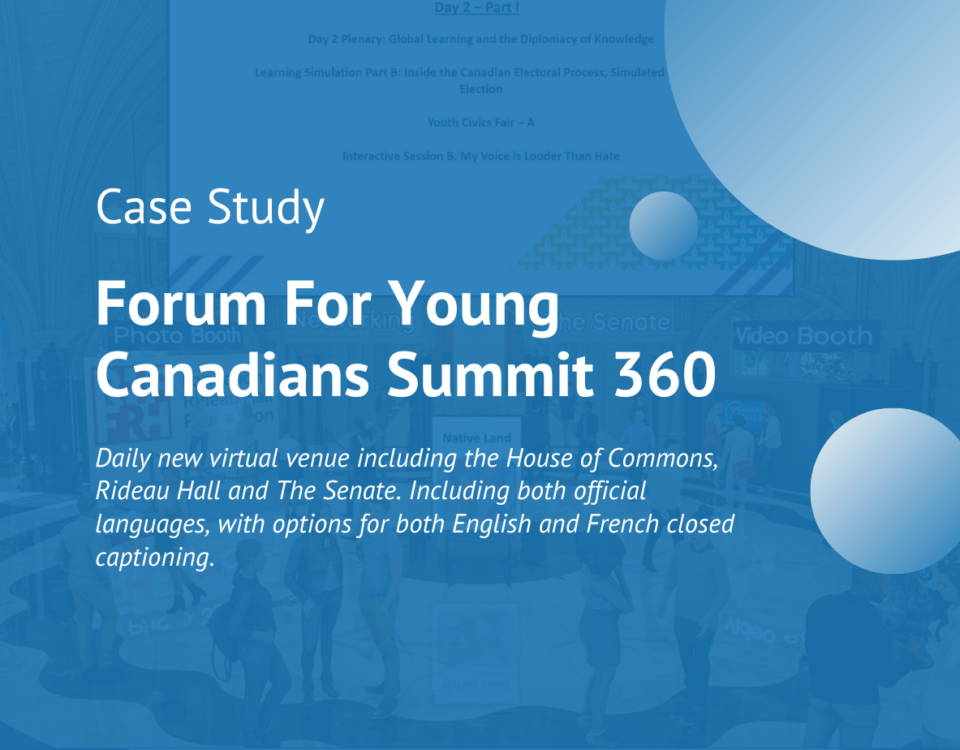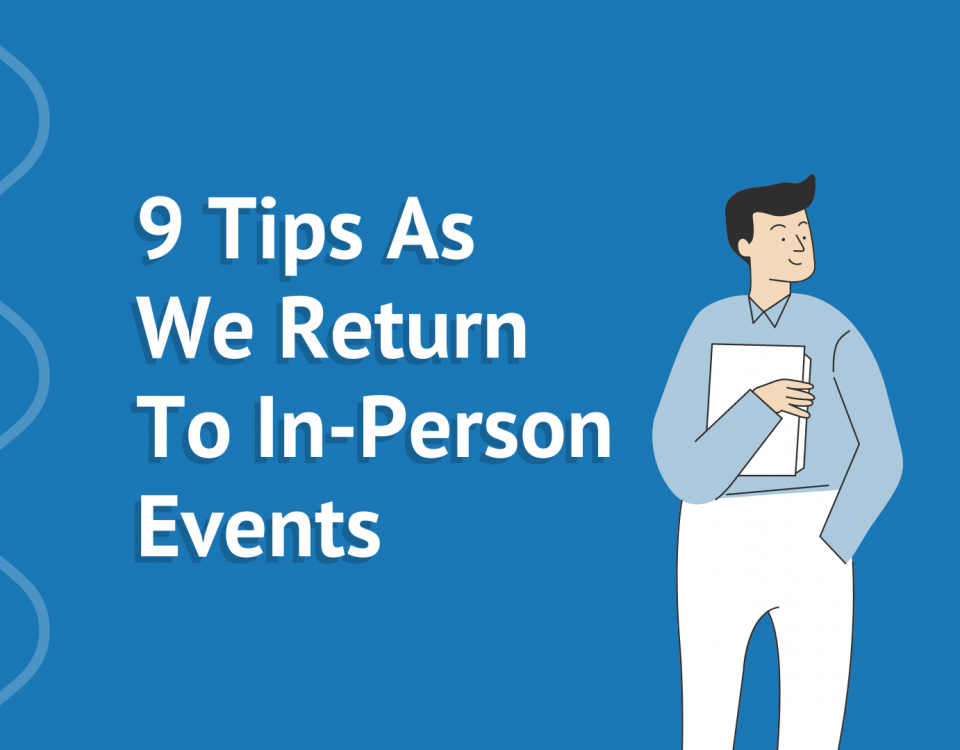
How To Host A Hybrid Event On A Budget
March 1, 2022
3D Versus 2D Events: Choosing The Virtual Side Of Your Hybrid Event
March 28, 2022Accessibility is a hot topic in the events world at the moment. Whether planning 600 conferences or small meetings, accessibility should be considered to ensure that everyone has a fantastic time! Fortunately, this topic is recently becoming more involved in the event industry.
It’s really easy to plan an event that’s open only to people who can hear, see, speak, walk and move as most of us do. But it’s also easy to forget about making your event as accessible as possible!
It’s a subject that’s incredibly important, but there are still some misconceptions around it. If you’re not sure where to start with making your event more accessible, here are some more explanations on how you can implement accessibility into your next event.
Why Is It Important?
The key to inclusion and accessibility is to be proactive about it so we don’t exclude a person with a disability or prevent them from attending your event. Accommodation usually is simple, inexpensive and ensures that everyone has an equal shot at being able to participate.
How You Can Make Your Next Event Accessible
The more consideration you put into making your event more accessible, the better it will be for everyone involved! You set yourself up for success if you create a diverse event from the start by:
- Reducing the need for individual accommodations, which (although necessary) can be time-consuming and expensive if they are made at the last minute.
- No matter if they have identified a disability to you or not, you make the event more inclusive and accessible for everyone.
Although, it is never a bad idea to consult directly with your event participants about their needs.
There are a lot of things to do to make your event accessible. Here are some tips:
- If you have a budget, hire ASL interpreters so that hearing-impaired people can enjoy the event as well.
- Whenever possible, make sure non-alcoholic drinks and non-alcoholic food are available at events that serve alcohol or food. This includes vegan and vegetarian options as well.
- The event should be located in a wheelchair-accessible area, which means that doors should be wide enough for wheelchairs and bathrooms should have grab bars near the toilet and sink.
- Send out e-mail reminders prior to the event in case people need to make arrangements for rides or accommodations.
- Write an accessibility statement on your event’s website.
- Make sure there is ample seating available throughout the venue.
- Provide water stations throughout the venue.
- Ensure there is plenty of aisle space.
- Make sure you have the number of staff working needed so they can help attendees.
The more consideration you put into making your event more accessible, the better it will be for everyone involved!
Conclusion
So, why is accessibility still an issue? In short, companies are not putting it high enough on their list of priorities. There’s always a time limit on things and often it feels like creating and maintaining accessibility just isn’t worth the extra time and money. That could be true, but then you need to ask yourself: are you planning to continue holding events within the next five years? Everyone will say “yes” to this question, but then how many of these planners are creating their event now with accessibility in mind?




